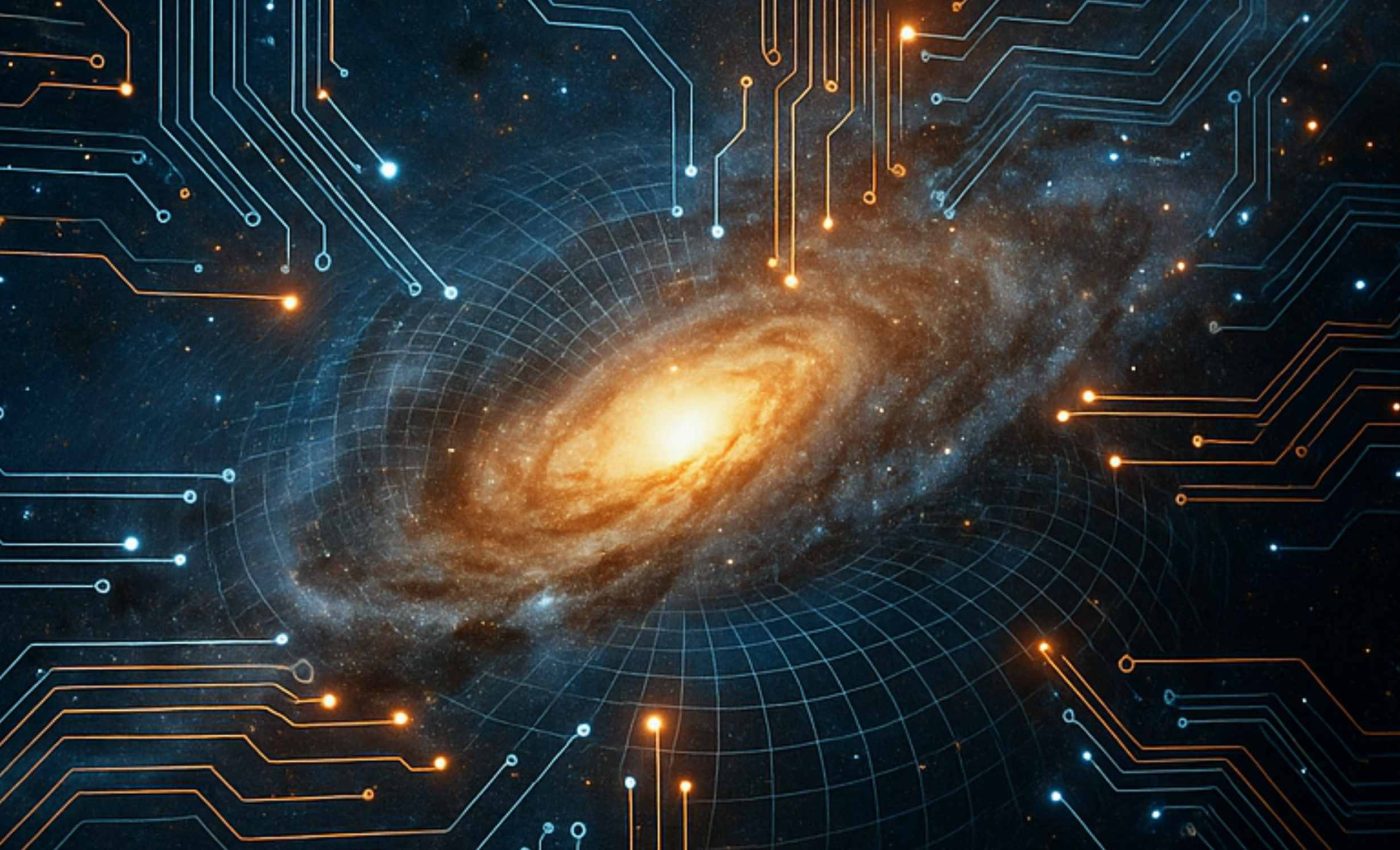
Gravity could be the definitive clue that the universe is one giant computer
Modern ideas about reality sometimes sound like a wild story. The notion that everything around us might be bits and bytes is easy to brush aside, yet it continues to intrigue many curious minds.
This perspective has led some researchers to wonder if physical forces might be signals of an underlying information system.
According to physicist Melvin M. Vopson of the University of Portsmouth, certain features of gravity may hint at information contained in a universal computational code.
Does gravity hold information?
Many scientists have explored unconventional interpretations of gravity. They have argued that it might emerge from a principle of data organization instead of being a traditional force.
In this view, the fabric of space might function like an information grid. If bits of matter or energy are arranged in a chaotic way, the grid has to track excessive details, so the system looks for simpler states that require fewer data points.
If space is made of discrete units – like pixels in a digital image – then every object we see is built from a finite set of positions and states. This idea challenges the old belief that space is smooth and continuous.
It also suggests that the universe doesn’t just follow rules – it might actually be running instructions. In that view, everything from stars to atoms could be behaving the way they do because they’re following coded commands.
Infodynamics as a guiding concept
When objects in space come together, information about their individual positions can be condensed. This process can reduce the complexity of the entire system.
“My findings in this study fit with the thought that the Universe might work like a giant computer,” said Vopson, who has described this as a computational shortcut.
The term infodynamics refers to an approach that connects information and physical processes. It suggests that matter behaves in ways that minimize data clutter.
Gravity as an information warehouse
That might mean gravity, which is often seen as an attraction between bodies, could be the result of nature’s tendency to optimize store information.
If everything is seen as an information construct, the universe may keep track of fewer details by grouping objects together.
Skeptics may wonder how to test something so abstract. Some suggest that phenomena like gravitational lensing or cosmic expansion could be examined from a data-centered perspective.
Others point to earlier ideas of entropic gravity, as proposed by different theorists who saw gravity as emerging from holographic principles.
There is still much debate over whether these models capture the whole truth or only scratch the surface.
Why does any of this matter?
If gravity truly points to a computerized universe, then other puzzles might gain fresh explanations. Dark matter and dark energy, for instance, currently remain major mysteries.
An information-based framework for gravity might offer alternate ways to interpret these elusive effects.
No one can say with certainty whether the entire cosmos is coded like sophisticated software. Many experts, however, see value in this approach because it unites physics and information theory in a single narrative.
Gravity, in this context, becomes an organizing tool that simplifies the cosmic puzzle. The more that matter lumps together, the fewer bits the system must handle. This idea, if confirmed, would change how we think about the nature of reality.
Researchers continue seeking ways to validate these claims, though it is a challenging job. In the meantime, theories like Vopson’s keep the conversation lively. They remind us that science can evolve in surprising directions.
Tension with current physics models
Vopson’s theory doesn’t replace general relativity or quantum mechanics – it competes with them conceptually.
Traditional models describe gravity as the curvature of space-time or the result of quantum fields, not a byproduct of data compression.
This raises questions about compatibility. Could both models be true in different ways? Or might one framework eventually prove more complete?
The answers depend on whether experimental evidence can confirm any specific predictions unique to the computational theory.
Testing the gravity information theory
One major challenge is testing the theory. If the universe operates like a computer, what tools could reveal its source code? Right now, there’s no clear experiment that could definitively confirm or rule out this theory.
Another issue is perspective. Even if gravity works as a kind of data-saving function, that doesn’t prove we’re inside a simulation. It just means information plays a deeper role in physics than we once thought.
Whether that requires the existence of a programmer or is just due to nature being efficient is still up for debate.
For most people, whether gravity is a force or a file-saving trick doesn’t change how we live. Apples still fall from trees. Planes still fly. But how we understand the “why” behind those things is shifting.
Even if the simulation idea is never proven, thinking this way can shape new technologies and ways of solving problems. It opens up new questions about how information works – not just in physics, but also in biology, computing, and beyond.
The study is published in the journal AIP Advances.
—–
Like what you read? Subscribe to our newsletter for engaging articles, exclusive content, and the latest updates.
Check us out on EarthSnap, a free app brought to you by Eric Ralls and Earth.com.
—–













